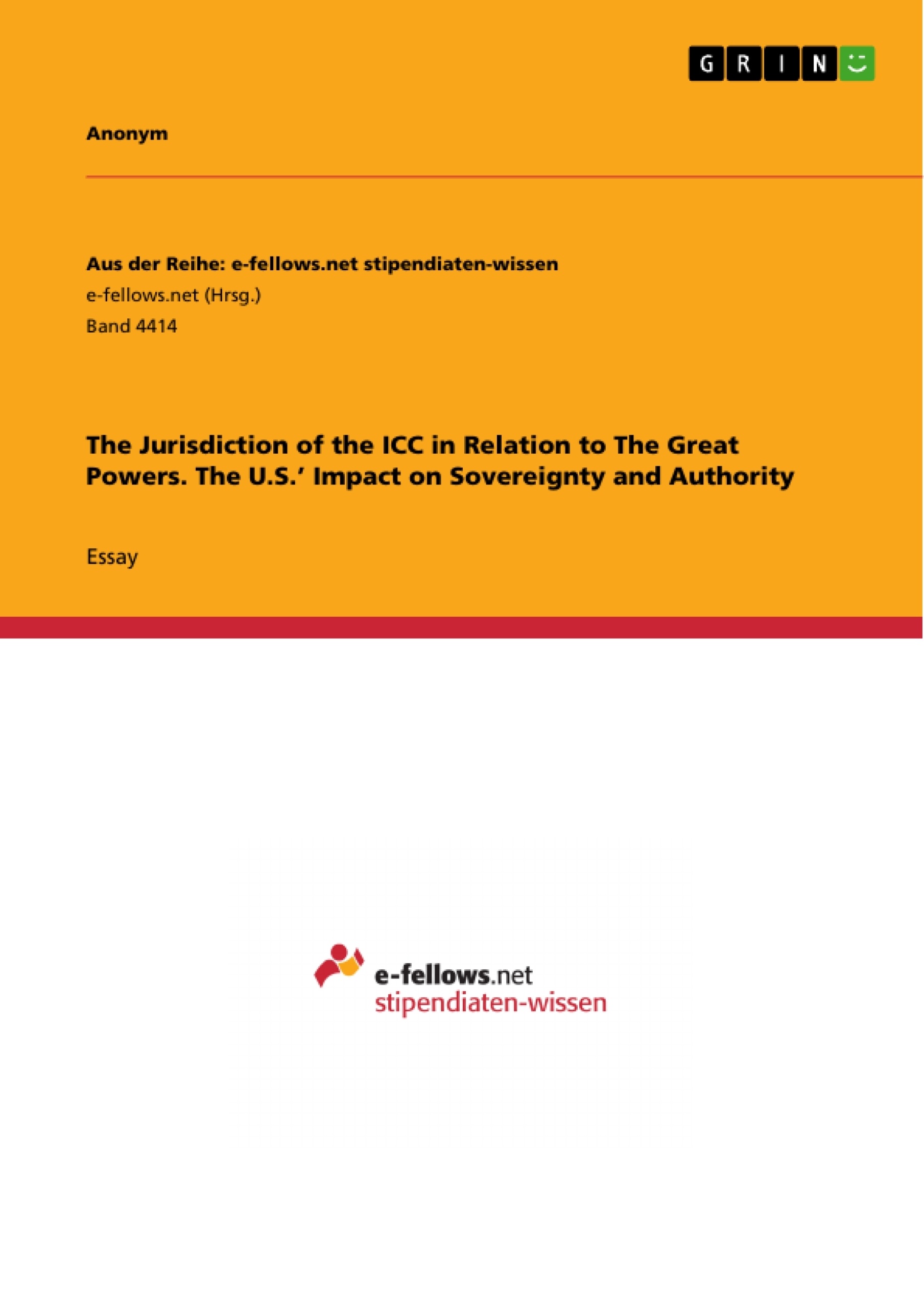How can the U.S. arguments regarding the ICC as a threat to state sovereignty be assessed? How is the ICC as an institution affected by the fact that the U.S. – one of the Permanent Five – is not part of the Rome Statute?
The ICC, being the world’s first permanent international criminal court, was established to prosecute individuals for “the most serious crimes of international concern”, namely genocide; crimes against humanity; war crimes; and the crime of aggression. Some controversies among states arose during the establishment, primarily concerning the court’s jurisdiction and its effects on state sovereignty. The clash between the authority of the ICC and the sovereignty of states has thereafter repeatedly been up for discussion. The U.S. is often depicted as one of the main opponents to the ICC due to the court’s alleged impact on state sovereignty. What may be considered ironic in the context is that the U.S. initially constituted one of the key creators of the court, to ultimately neither sign nor ratify its statute.
An argument that has been put forward by the U.S. is that there is no need for an external juridical body for such a well-established, sovereign state as the U.S. However, such a body would serve a purpose for other states, which do not meet the high U.S. standards. This argument shows clear tendencies of so-called American exceptionalism, which is the idea that the U.S. is superior to other states for historical, ideological or religious reasons. What makes this standpoint further interesting is that the U.S., despite not being part of the Rome Statute, may refer cases to the ICC in its capacity as one of the permanent members of the UNSC – which they have, on several occasions. In other words, the U.S. appears to be in the position to exercise indirect control over an international institution which their own nationals cannot be subjects to.
Inhaltsverzeichnis (Table of Contents)
- Introduction
- Topic
- Purpose
- Issue
- Delimitation
- Definitions of Factual Terms
- Sovereignty
- Authority
- Great Powers
- Method and Materials
- Theoretical Perspective
- Postcolonial Perspective
- Critical Perspectives
- International Perspective
- Background
- The Establishment of the ICC
- The Jurisdiction of the ICC
- The Principle of Complementarity
- Referral to the ICC
- The U.S. Not Being Part of the Rome Statute
- Analysis and Discussion
- The U.S. arguments against the ICC
- Importance of Sovereignty
- ICC supporting State sovereignty
- Comparison of the Rome Statute to the National Court Situation
- Referral and Deferral as an UNSC Member
- Impact on the ICC
- Symbolic impact
- Indirect control and American Exceptionalism
- Potential consequences if all powerful states did this?
- Conclusion
- Summary of the Situation
- Further Reflections
Zielsetzung und Themenschwerpunkte (Objectives and Key Themes)
This work examines the jurisdiction of the International Criminal Court (ICC) in relation to the great powers, particularly focusing on the United States' impact on sovereignty and authority. It explores the U.S.'s stance on the ICC, its arguments against the court, and the potential consequences of its non-participation. This study aims to analyze the complex interplay between international criminal justice and state sovereignty, and to understand how the U.S. has shaped the development and functioning of the ICC.
- The ICC's Jurisdiction and its potential impact on State sovereignty
- The U.S.'s opposition to the ICC and its justifications
- The concept of American exceptionalism and its implications for international law
- The potential consequences of great power non-participation in the ICC
- The interplay between the UN Security Council and the ICC's jurisdiction
Zusammenfassung der Kapitel (Chapter Summaries)
The Introduction introduces the topic of the ICC, its establishment, and the controversy surrounding its jurisdiction and impact on state sovereignty. It particularly focuses on the U.S.'s position as a key creator of the court while ultimately not participating in it.
The Background chapter provides a comprehensive overview of the ICC, its establishment, jurisdiction, and the principle of complementarity. It also discusses the process of referral to the ICC and the U.S.'s decision not to join the Rome Statute.
The Analysis and Discussion section delves into the U.S.'s arguments against the ICC, including its emphasis on sovereignty, its perception of the ICC's support for state sovereignty, and a comparison of the Rome Statute to national court situations. It also explores the role of referral and deferral for UNSC members like the U.S.
Further, it analyzes the impact of the U.S.'s non-participation on the ICC, highlighting the symbolic impact, the potential for indirect control, and the concept of American exceptionalism. It also explores the potential consequences if other powerful states follow the U.S.'s example.
Schlüsselwörter (Keywords)
This study revolves around the core concepts of international criminal justice, state sovereignty, American exceptionalism, the International Criminal Court (ICC), the Rome Statute, the United States, the UN Security Council, and the principle of complementarity. It examines the interplay between these key themes and their implications for international law and the global order.
- Quote paper
- Anonym (Author), 2023, The Jurisdiction of the ICC in Relation to The Great Powers. The U.S.’ Impact on Sovereignty and Authority, Munich, GRIN Verlag, https://www.hausarbeiten.de/document/1462407


